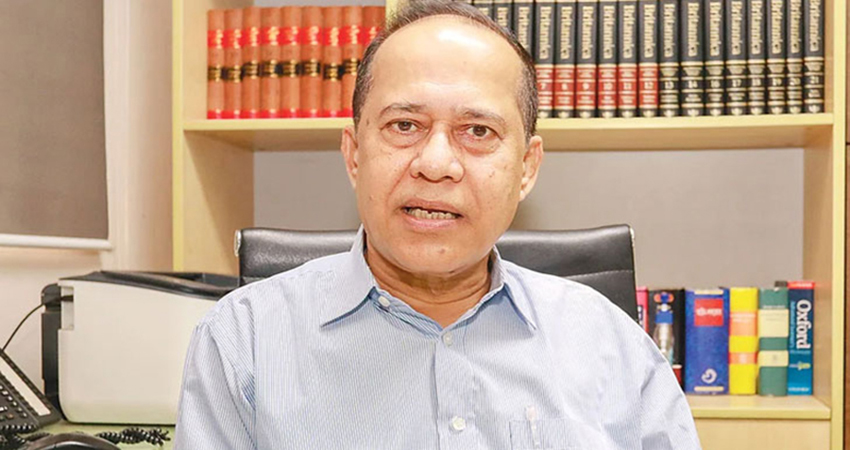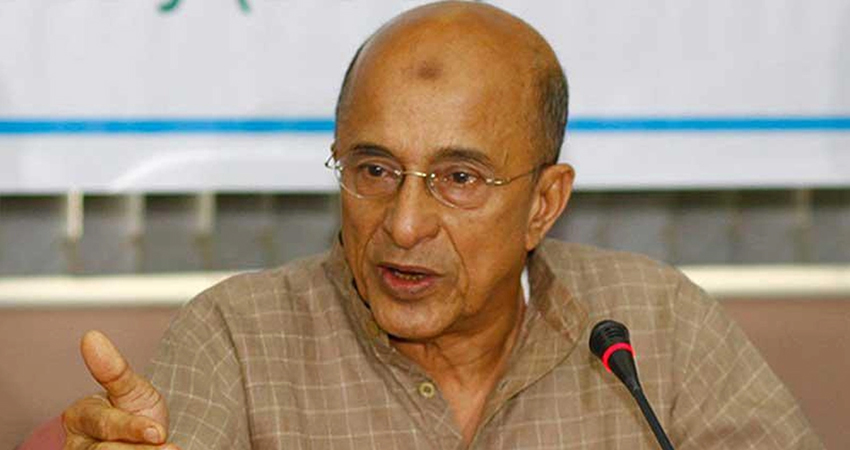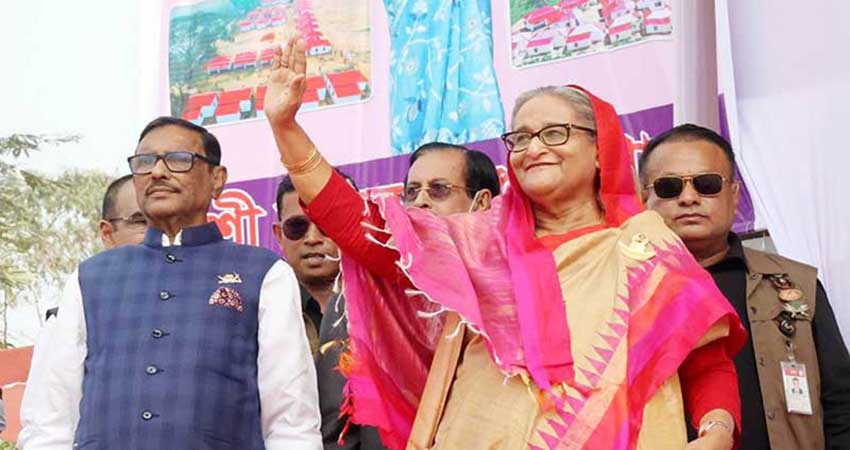Prime Minister Sheikh Hasina yesterday warned that the current situation in Sylhet and Sunamganj might get worse as the floods could spread to the southern, northern and central parts of the country.
The premier instructed the ministries and authorities concerned to take holistic preparations to tackle the adverse impacts, as two more floods may occur by August, including the purchase of rescue boats and taking measures for quick evacuation.
For the last couple of days, the border districts of Sylhet, Sunamganj, Moulvibazar and Netrokona districts have been experiencing the worst floods in more than a century that left over four million people inmisery.
Many new districts in the northeast have also been submerged as the hilly onrush continues to flow into Bangladesh, triggered by heavy rains in Assam and Meghalaya.
During the meeting, the premier expressed her displeasure at the lack of a clear weather forecast regarding flash floods.
Sheikh Hasina made the observations during a meeting of the National Disaster Management Council (NDMC) at the Prime Minister’s Office (PMO) in the afternoon, a day before her visit to the Sylhet region.
The NDMC is the apex body that was established to provide policy guidance toward disaster risk reduction and emergency response management in Bangladesh.
Prime Minister Sheikh Hasina chaired the meeting. Other members of the NDMC, including Home Minister Asaduzzaman Khan Kamal, Agriculture Minister Dr M Abdur Razzaque, Health Minister Zahid Maleque, Environment, Forest and Climate Change Minister Shahabuddin, State Minister for Shipping Khalid Mahmud Chowdhury, State Minister for Disaster Management Dr Enamur Rahman, Deputy Minister of Water Resources Enamul Hoque Shamim, top officials of the three forces, Border Guard Bangladesh, Coast Guard, Fire Service and secretaries of the ministries concerned, among others, were present at the meeting that lasted for two and a half hours.
Quoting the premier, two ministers told this correspondent that she gave the ministries and divisions concerned specific assignments to tackle the flood situation. She stressed the need for taking adequate measures before, during and after floods.
Hasina instructed the Disaster Management and Relief Ministry to stock more foodgrains for the flood-affected people in Sylhet and Sunamganj and distribute them until the people got back to their regular lives.
The premier ordered officials to rehabilitate the people of Sylhet and Sunamganj, who had lost their houses, crops and livelihoods during the floods.
She also said that more relief materials should be kept ready for the middle, southern and northern parts of the country as two more floods might affect some districts soon.
The authorities were also directed to relocate the people living in the risky hilly areas to nearby shelters as landslides may also happen in some areas of Chittagong, the hill tracts and Sylhet due to heavy rains.
As a permanent solution, the premier said that the government would build housing projects for the people living in risky hilly areas.
Lessons learnt
Sheikh Hasina also said that there must be adequate measures to collect high-end rescue boats for evacuation of the stranded people and to distribute relief materials in remote areas.
Meeting sources said the Disaster Management and Relief Ministry would purchase 30 rescue boats and 15 Gemini boats to make rescue operations smoother in flood-hit zones.
The authorities as well as volunteers working in Sylhet and Sunamganj have been facing severe trouble finding boats at a convenient cost due to the sudden rise of water and a spike in demand.
Mentioning that the flood might create extra pressure on the food and agriculture sector of the country, the premier instructed the Agriculture Ministry to spread floating seedbeds in the flood-affected area and the Food Ministry to stock more basic foodgrains to tackle the upcoming crisis.
Hasina also ordered the Ministry of Shipping and the Ministry of Water Resources to dredge all rivers, canals and water reservoirs of the country regularly so the water flow is not disrupted.
As water-borne diseases usually proliferate in the flood-affected areas, the prime minister ordered the Health Ministry to distribute water purification tablets, salines and necessary medicines among the affected people.
When contacted, State Minister Dr Enamur Rahman told Dhaka Tribune that the prime minister had thanked everyone involved in the rescue operations and relief works in Sylhet and Sunamganj.
“The premier gave us instructions to take massive preparations for the betterment of the flood-affected people of the country,” he said.



















